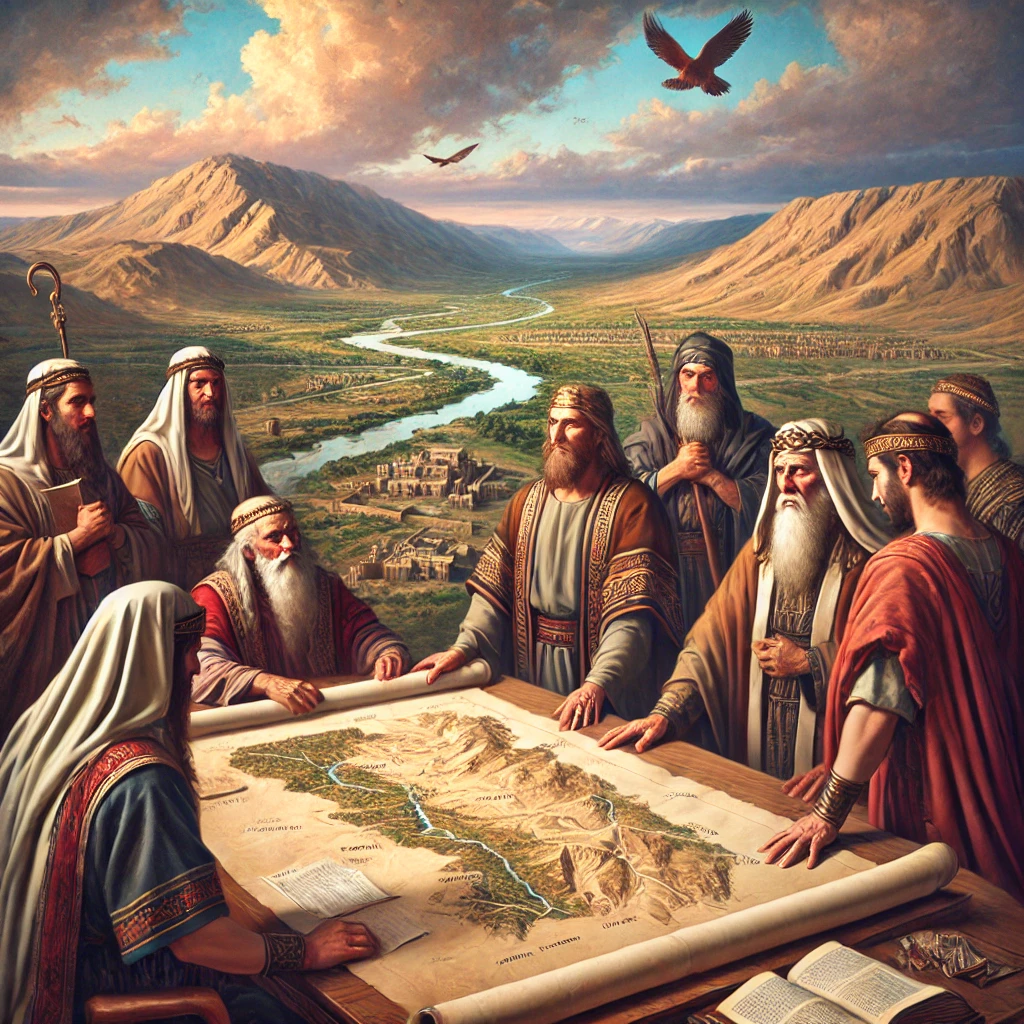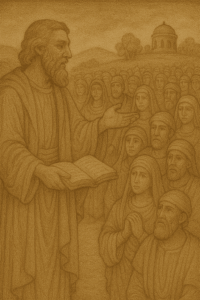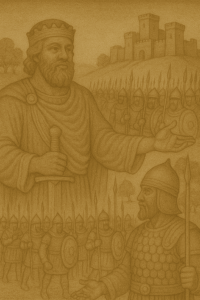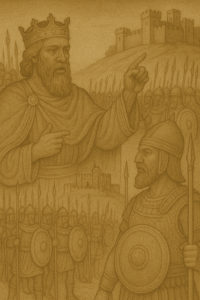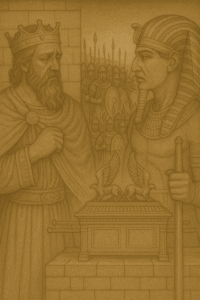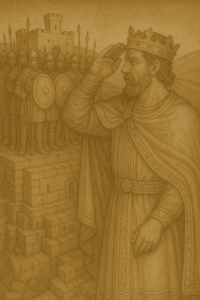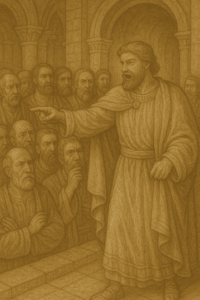Introduction.
Joshua Chapter 17 details the allotment of land to the half-tribe of Manasseh, focusing on the significance of inheritance, the request of Zelophehad’s daughters, and the challenges faced by the tribe. This chapter emphasizes themes of justice, divine promise, and the importance of perseverance. In this blog post, we delve into the key elements of Joshua Chapter 17 and explore the lessons they offer.
The boundaries of Manasseh’s territory.
The chapter begins by describing the specific boundaries of the territory allotted to the half-tribe of Manasseh. Joshua 17:1-2 outlines the initial division:
“This was the allotment for the tribe of Manasseh as Joseph’s firstborn, that is, for Makir, Manasseh’s firstborn. Makir was the ancestor of the Gileadites, who had received Gilead and Bashan because the Makirites were great soldiers. So this allotment was for the rest of the people of Manasseh—the clans of Abiezer, Helek, Asriel, Shechem, Hepher, and Shemida. These are the other male descendants of Manasseh son of Joseph by their clans.”
This section sets the stage for the more detailed inheritance distribution within the tribe.
The inheritance of Zelophehad’s daughters.
A notable event in this chapter is the inheritance request made by the daughters of Zelophehad. Joshua 17:3-4 records their petition:
“Now Zelophehad son of Hepher, the son of Gilead, the son of Makir, the son of Manasseh, had no sons but only daughters, whose names were Mahlah, Noah, Hoglah, Milkah and Tirzah. They went to Eleazar the priest, Joshua son of Nun, and the leaders and said, ‘The Lord commanded Moses to give us an inheritance among our relatives.’ So Joshua gave them an inheritance along with the brothers of their father, according to the Lord’s command.”
This event underscores the importance of justice and the honoring of God’s commands regarding inheritance rights, regardless of gender.
Challenges in conquering the land.
Despite receiving their inheritance, the half-tribe of Manasseh faces challenges in fully possessing their territory. Joshua 17:12-13 highlights these difficulties:
“Yet the Manassites were not able to occupy these towns, for the Canaanites were determined to live in that region. However, when the Israelites grew stronger, they subjected the Canaanites to forced labor but did not drive them out completely.”
This incomplete conquest illustrates the ongoing struggle and the need for perseverance in fulfilling God’s promises.
The request for more land.
The descendants of Joseph, including the tribes of Ephraim and Manasseh, request additional land due to their large population. Joshua 17:14-18 captures Joshua’s response:
“The people of Joseph said to Joshua, ‘Why have you given us only one allotment and one portion for an inheritance? We are a numerous people, and the Lord has blessed us abundantly.’ ‘If you are so numerous,’ Joshua answered, ‘and if the hill country of Ephraim is too small for you, go up into the forest and clear land for yourselves there in the land of the Perizzites and Rephaites.’… The people of Joseph replied, ‘The hill country is not enough for us, and all the Canaanites who live in the plain have chariots fitted with iron, both those in Beth Shan and its settlements and those in the Valley of Jezreel.’ But Joshua said to the tribes of Joseph—to Ephraim and Manasseh—‘You are numerous and very powerful. You will have not only one allotment but the forested hill country as well. Clear it, and its farthest limits will be yours; though the Canaanites have chariots fitted with iron and though they are strong, you can drive them out.’”
Joshua’s response emphasizes the need for initiative and effort in claiming and expanding their territory.
Lessons from Joshua chapter 17.
- Justice and equality: The inheritance granted to Zelophehad’s daughters highlights the importance of justice and equality in following God’s commands. It demonstrates that divine promises apply to all, regardless of gender.
- Perseverance in challenges: The incomplete conquest of Manasseh’s territory underscores the need for perseverance and continued effort in fulfilling God’s promises. Challenges should be met with determination and faith.
- Initiative and effort: Joshua’s directive to the tribes of Joseph to clear additional land emphasizes the importance of taking initiative and putting in effort to achieve God’s blessings.
- Divine promises: The chapter reinforces the certainty of God’s promises and the importance of trusting in His guidance and provision, even when faced with difficulties.
Conclusion.
Joshua Chapter 17 is a chapter that details the allotment of land to the half-tribe of Manasseh. It highlights themes of justice, perseverance, initiative, and the fulfillment of divine promises. As we reflect on this chapter, let us be inspired to uphold justice, persevere through challenges, take initiative in our endeavors, and trust in God’s unfailing promises.
